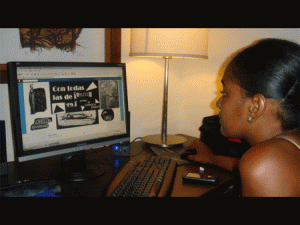 In Cuba, my unknown homeland, published on January 3rd, 2010, a reader who signed under the name of Philipp, and who, because of the flag shown, must live in Germany, left the following comment on August 3rd, 2011.
In Cuba, my unknown homeland, published on January 3rd, 2010, a reader who signed under the name of Philipp, and who, because of the flag shown, must live in Germany, left the following comment on August 3rd, 2011.
“A question remains: this I don’t understand…How is it possible that you have a blog (meaning you have access to the internet) and that you don’t have the possibility of making a trip with Astro, staying at a private house for national tourists, or any of the other camping sites of the many that exist in your beautiful country?
“I imagine that keeping this blog is at least as expensive as a trip similar to the one I described.
“Traveling around Cuba I met a bunch of Cubans traveling through their own country, in fact I found more Cuban tourists than foreigners. Can you explain this please?
“Thank you very much, warm regards.”
Since my internet time ran out, preventing me from commenting on the blog, I e-mailed the comment to the independent journalist Tania Quintero. Tania lives in Switzerland as a political refugee and along with the Portuguese friend Carlos Moreira, does Iván and me the favor of administering the blog From Havana, in their free time and without charging us a cent. Thus, the explanation that follows does not refer to this blog, but to Laritza’s Laws, blog that I manage all by myself and that I cannot keep as updated as I would want.
Mr. Philipp: I don’t doubt that you have seen many Cubans touring their country, entering the classification of “national tourism”, but they have to pay with hard currency, meaning, in convertible pesos. Keeping a blog from Cuba is not as expensive as making a trip throughout the entire island, especially if one knows the technological possibilities that the web provides, in order to program in advance all of the works that have to be uploaded.
I can’t always connect to the internet once a week, from a hotel, at a price of 15 convertible pesos (cuc), a price that in national currency would be enough to do a round trip with Astro, paying for the service in Cuban pesos, the way you suggest, in order to support the economy, and ignoring the time that I have to waste standing in lines, which I hope you have seen in Cuba.
Back to the topic of internet. With 15 cuc I can acquire a card for two hours of internet access in a Havana hotel.
My work begins at home, when I write the text in Word 2007. Then I use a template that allows me to publish it, once connected to the internet, along with images, directly to my blog or as a draft. Then I open the blog (Laritza’s Laws) and I only have to program it so that it comes out at the chosen date.
Internet cards are one of the best gifts a friend from abroad or a traveler to Havana can make to a blogger. In that sense, I am very lucky: thanks to that help, those 15 cuc that a card costs, I can use to buy food for my family or a pair of shoes for my son.
I hope my explanation can help you understand that traveling through Cuba is much more expensive than keeping a blog.
With a long delay on this case, I take this opportunity to respond to Anteco, a Spanish reader, whom I invite to coffee in my house, if he ever travels to Havana one day. These are his words:
“I have just discovered this blog, and from the few entries I have read, without a doubt this one is very moving and gives an idea of the sad reality of Cuba. I am a Spaniard in love with your country (which I have never been to) and with a great curiosity to get to know one day the Cuban people. However, I would have never imagined that the restrictions of the Castro regime reached that point. It seems that the wonders of your island are limited to the enjoyment of the rich foreign tourists, a contradiction-come-true in a communist regime. I hope there is soon freedom in Cuba.”
Read also: Daughter of the revolution and Why did you make me a dissident?
Picture: It is from 2009, in the Saratoga Hotel, when Laritza was managing the blog Laritza’s Laws which she later decided to call Cuban Legal Advisor.
Translated by: Claudia D.
August 6 2011

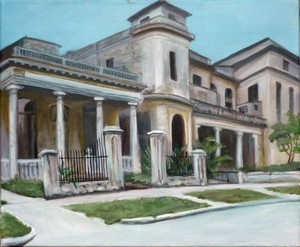
 On the afternoon of July 15, 2011, the town of Mantilla, on Havana’s outskirts, was shocked by the death of Angel Izquierdo Medina, a 14-year-old black teenager, who died from a gunshot to the femoral artery by Amado Interian, a retired police Major.
On the afternoon of July 15, 2011, the town of Mantilla, on Havana’s outskirts, was shocked by the death of Angel Izquierdo Medina, a 14-year-old black teenager, who died from a gunshot to the femoral artery by Amado Interian, a retired police Major.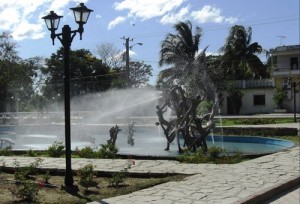 On June 21st the offices of the National Institute of Housing in Las Tunas issued an ultimatum to evict from their home the daughter and grandchildren of the deceased Gustavo Valeriano Sanchez Urquiza, a fighter who participated in the guerrilla warfare fought by the Rebel Army in the oriental zone.
On June 21st the offices of the National Institute of Housing in Las Tunas issued an ultimatum to evict from their home the daughter and grandchildren of the deceased Gustavo Valeriano Sanchez Urquiza, a fighter who participated in the guerrilla warfare fought by the Rebel Army in the oriental zone.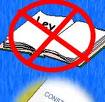
 Although the word freedom was absent, 12.7% of the guidelines approved by the Communists, for the five years 2011-2015, referred to the human rights of Cubans
Although the word freedom was absent, 12.7% of the guidelines approved by the Communists, for the five years 2011-2015, referred to the human rights of Cubans 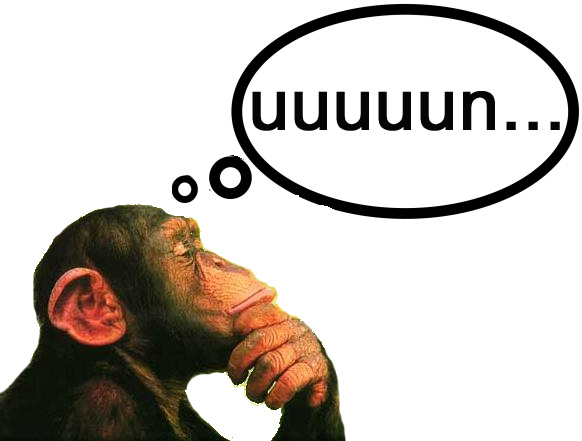 Logic passed through Cuba. He was curious about how socialist democracy worked, but full of doubts. He asked everyone he saw, and only Absurdity could give an answer. “Why have the decisions of a political party been so decisive in the life of an entire people?” was Logic’s first concern.
Logic passed through Cuba. He was curious about how socialist democracy worked, but full of doubts. He asked everyone he saw, and only Absurdity could give an answer. “Why have the decisions of a political party been so decisive in the life of an entire people?” was Logic’s first concern.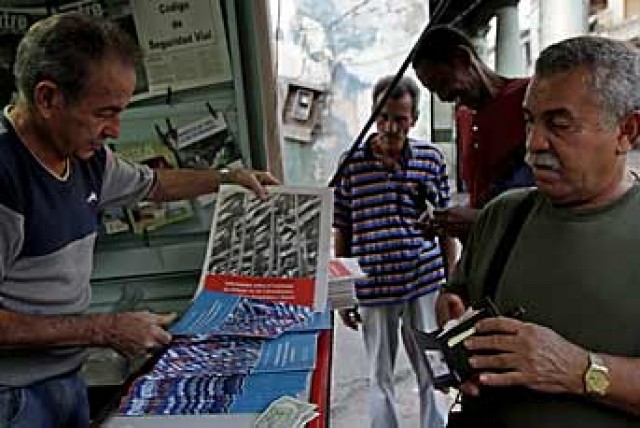 The streets of the island were full of comments after, around the middle of the month, the government brought out a paper with the debates of the congress, and a leaflet with the ideas that were passed, confirming that Cubans will be able to sell their houses and cars, and in the future to travel as tourists.
The streets of the island were full of comments after, around the middle of the month, the government brought out a paper with the debates of the congress, and a leaflet with the ideas that were passed, confirming that Cubans will be able to sell their houses and cars, and in the future to travel as tourists. David was found guilty of murder by the Camaguey tribunal after investigators from the Ministry of the Interior found traces of his scent on the trunk of a carob tree.
David was found guilty of murder by the Camaguey tribunal after investigators from the Ministry of the Interior found traces of his scent on the trunk of a carob tree.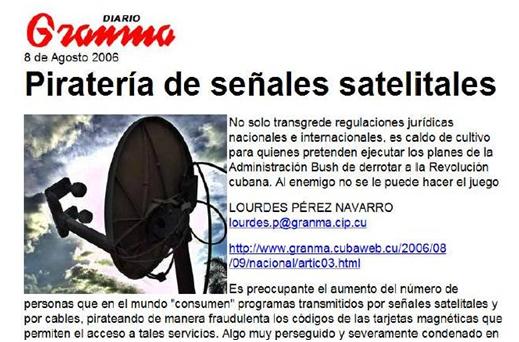
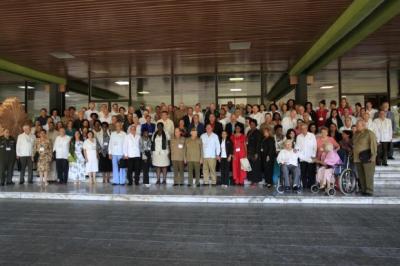
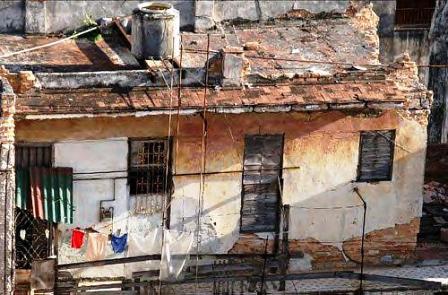 The Communist Party Congress increases expectations, yet the changes announced do not imply more freedoms for Cubans.
The Communist Party Congress increases expectations, yet the changes announced do not imply more freedoms for Cubans.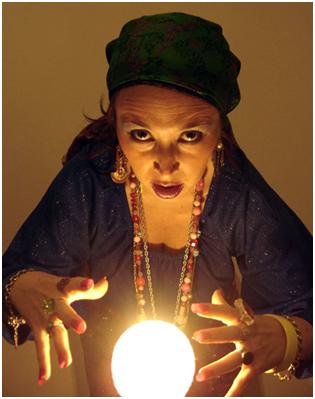 The court of Camagüey sentenced Delvis David Peña Mainer to 40 years in jail, for the brutal murder with a machete of 23-year-old Yeinier Moreno Leyva and his wife, 17-year-old Yuliet Urquiz Batista.
The court of Camagüey sentenced Delvis David Peña Mainer to 40 years in jail, for the brutal murder with a machete of 23-year-old Yeinier Moreno Leyva and his wife, 17-year-old Yuliet Urquiz Batista.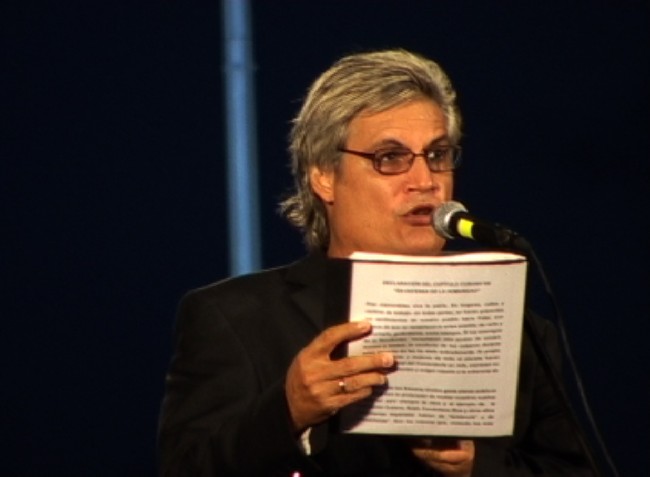
 Cuban civil society is looking forward to what will happen in July when the network structure of the island is connected to to the fiber optic cable that came in early February to Cuba from Venezuela. The event, which will multiply by 3,000 the speed of data transmission, also helped the government admit its fear of individual use of the virtual tools of information.
Cuban civil society is looking forward to what will happen in July when the network structure of the island is connected to to the fiber optic cable that came in early February to Cuba from Venezuela. The event, which will multiply by 3,000 the speed of data transmission, also helped the government admit its fear of individual use of the virtual tools of information.